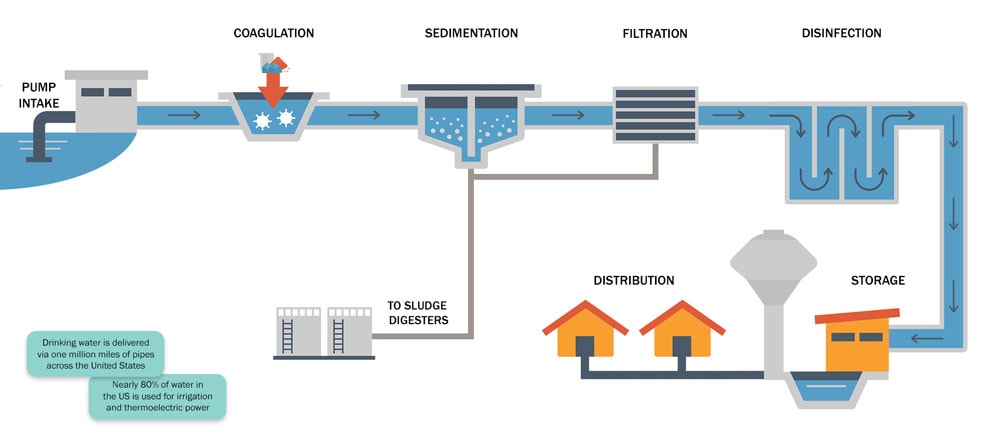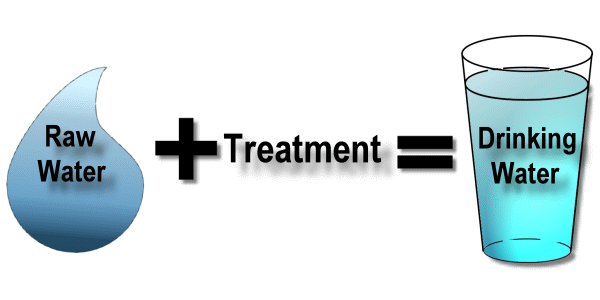Exploring Water Technology Startups: Exactly How They Transform Lasting Solutions
Water Technology start-ups are emerging as vital players in the mission for lasting remedies to international water issues. These companies take advantage of innovative technologies to boost water performance and administration. Their contributions attend to pressing difficulties such as deficiency and contamination. However, regardless of their possibility, they face different obstacles that could influence their success. Recognizing these dynamics loses light on the future of water sustainability and the role these start-ups may play fit it.
The Relevance of Water Technology in Today's Globe
As global water deficiency intensifies, the relevance of water Technology ends up being significantly apparent. Water Technology plays a crucial function in addressing the difficulties positioned by lessening freshwater resources and enhancing need. It incorporates a broad series of technologies, consisting of advanced filtering systems, wastewater treatment innovations, and smart irrigation remedies. These developments not only enhance the performance of water usage yet likewise promote lasting practices throughout numerous sectors, consisting of farming, industry, and urban advancement.
Additionally, the value of water Technology expands beyond source monitoring. It promotes strength against climate modification influences, such as floodings and dry spells, by giving flexible remedies for water preservation and monitoring. Additionally, it supports public health by guaranteeing accessibility to secure and tidy alcohol consumption water. As the world deals with growing water-related obstacles, the assimilation of sophisticated water technologies is vital for promoting sustainable development and protecting water accessibility for future generations.
Ingenious Solutions From Water Tech Startups
While conventional methods to water management have actually served their function, a new wave of water tech startups is changing the industry with ingenious solutions (Water Technology Startups). These companies leverage sophisticated technologies to attend to pressing water issues, such as deficiency, contamination, and ineffective distribution. Many start-ups use expert system and artificial intelligence to enhance water usage and forecast demand, causing more lasting methods
Furthermore, numerous firms concentrate on establishing advanced filtering systems that remove toxins and make water safe for intake. Others discover decentralized water treatment modern technologies, enabling communities to manage their water sources much more effectively. Some startups are pioneering wise irrigation remedies that minimize water waste in agriculture, promoting ecological preservation.
Instance Studies: Effective Water Technology Startups
Numerous water Technology startups have arised as leaders in resolving global water challenges via innovative techniques. One significant instance is Xylem, which concentrates on water analytics and clever infrastructure to maximize water use and decrease waste. Their services have been carried out in different districts, showing substantial renovations in water administration effectiveness.
An additional effective start-up, No Mass Water, has established solar-powered hydropanels that draw out water vapor from the air, supplying sustainable drinking water in arid regions. Water Technology Startups. This Technology has been released in numerous nations, ensuring areas have accessibility to tidy water
Finally, AquaVenture Holdings operates a diverse portfolio of water-as-a-service solutions, addressing water deficiency via desalination and wastewater treatment. Their tasks have actually shown crucial in areas dealing with severe water shortages, showcasing the possibility of ingenious water innovations to create lasting, favorable effects. These study highlight the transformative possibility of startups in the water Technology sector.
The Duty of Smart Technology in Water Administration
Smart Technology plays a necessary role in modern-day water administration by leveraging IoT applications to optimize source use. Information analytics boosts efficiency by offering actionable understandings, while remote monitoring remedies allow real-time oversight of water systems. With each other, these developments change exactly how water is managed, advertising sustainability and operational performance.
IoT Applications in Water
As water shortage and monitoring difficulties heighten globally, the assimilation of Internet of Points (IoT) applications has arised as a pivotal option in enhancing water resources. IoT Technology helps with real-time surveillance and analysis of water supply, allowing much more reliable use and management. Sensing units deployed in numerous water frameworks can track quality, flow prices, and leak, offering useful information to stakeholders. This data equips consumers and utilities to make enlightened choices, reducing waste and enhancing preservation initiatives. In addition, smart irrigation systems use IoT to maximize water delivery for farming, guaranteeing that crops get the appropriate amount of water at the best time. Generally, IoT applications are changing typical water monitoring practices, fostering sustainability and durability in water resource systems.
Information Analytics for Performance
Using information analytics is vital for improving effectiveness in water monitoring. Water Technology start-ups are significantly making use of innovative analytics to maximize source appropriation and lower waste. By analyzing information from numerous resources, these start-ups can determine patterns and trends that inform better decision-making. For example, predictive analytics can anticipate water need, enabling utilities to adjust supply accordingly, thereby minimizing excess and lacks. In addition, real-time information processing makes it possible for the prompt detection of leaks and inefficiencies within circulation systems, substantially minimizing operational costs. Data-driven insights encourage stakeholders to carry out targeted conservation methods, promoting sustainable methods. Fundamentally, incorporating data analytics into water administration not just enhances operations yet likewise promotes long-lasting sustainability in water source use.
Remote Monitoring Solutions
While conventional water administration systems usually have problem with inefficiencies, remote surveillance services are changing how water sources are managed. These cutting-edge innovations make it possible for real-time data collection and evaluation, permitting stakeholders to keep track of water top quality, flow prices, and use patterns from afar. Utilizing sensors and IoT tools, remote monitoring offers instant understandings that help with aggressive decision-making. This change not only improves functional performance but also promotes sustainability by lowering water waste and optimizing resource allowance. In addition, remote surveillance systems can identify potential problems prior to they rise, thereby reducing the danger of contamination or facilities failing. As water Technology start-ups remain to develop these solutions, the industry is poised for considerable improvements in lasting water monitoring techniques.
Obstacles Facing Water Technology Startups
Water Technology startups encounter significant challenges that can hinder their growth and success. Trick issues consist of safeguarding adequate financing, steering via intricate regulatory atmospheres, and competing in a congested marketplace. These browse around here barriers call for critical preparation and technology to get over.
Financing and Financial Investment Obstacles
Although development in water Technology holds immense potential for dealing with global challenges, start-ups in this market commonly deal with considerable funding and financial investment difficulties. Several financiers continue to be careful, perceiving the water field as high-risk as a result of its complicated regulatory landscape and lengthy development timelines. In addition, startups frequently battle to demonstrate prompt success, which can deter prospective backers. Conventional financial backing might overlook water innovation, preferring industries with quicker returns, such as technology or customer items. Protecting gives and government financing can be time-consuming and competitive, additional complicating monetary security. Therefore, numerous cutting-edge water Technology start-ups discover themselves in a precarious setting, calling for innovative financing strategies to navigate these monetary obstacles and achieve their goals
Regulative Conformity Issues
Guiding regulatory compliance is a considerable obstacle for startups in the water Technology market, as they have to grapple with a myriad of local, national, and worldwide guidelines. These laws typically incorporate water top quality standards, environmental management legislations, and security procedures, which can differ extensively throughout territories. Start-ups might locate it tough to browse this facility landscape, specifically when scaling procedures or getting in brand-new markets. The prices connected with conformity can be considerable, diverting resources away from advancement and product advancement. Furthermore, delays in obtaining necessary permits or certifications can hinder development and market access. Visit Website Subsequently, a robust understanding of regulative frameworks is essential for these start-ups to ensure sustainable procedures and stay clear of possible legal repercussions.
Market Competition Dynamics
As water Technology start-ups emerge in a competitive landscape, they encounter many challenges that can impede their growth and technology. Established business commonly control the marketplace, leveraging sources and experience to preserve their positions. Start-ups have problem with limited financing, which restricts study and advancement abilities, making it hard to contend on Technology and pricing. In addition, the rapidly advancing nature of water innovations needs continuous adaptation, more straining start-up sources. Regulative difficulties can complicate market access, as compliance with ecological standards is essential yet costly. Ultimately, attracting knowledgeable skill in a niche field offers another challenge, as bigger firms may supply even more enticing employment bundles. These aspects produce an intricate environment for water Technology start-ups intending to succeed.
The Future of Water Technology and Sustainability

The future of water Technology will likely concentrate on integrating man-made intelligence and data analytics to maximize water distribution and usage patterns. By taking advantage of real-time data, firms can anticipate shortages and manage sources much more effectively. Sustainable techniques will come to be a foundation of the sector, motivating circular economic situations where water is reused and dealt with. Ultimately, the ongoing evolution of water Technology will be vital in producing resilient facilities with the ability of satisfying the challenges positioned by environment change and populace development while promoting ecological stewardship.
Frequently Asked Concerns
What Are the Trick Metrics for Examining Water Technology Startups?
Trick metrics for reviewing water Technology start-ups include market capacity, scalability, consumer acquisition expenses, earnings development, technology innovation, regulatory conformity, environmental effect, affordable benefit, and team expertise, all vital for establishing long-term feasibility and success.
Just How Can Individuals Support Water Technology Innovations?
Individuals can sustain water Technology advancements by investing in startups, promoting for policy modifications, taking part in community initiatives, sharing understanding regarding lasting techniques, and advertising awareness of water issues with social media sites and local events.
What Are Typical Funding Sources for Water Tech Startups?
Common funding sources for water tech startups include equity capital, government gives, crowdfunding systems, angel capitalists, and company collaborations. These economic visit their website methods aid promote technology and growth in lasting water administration innovations.

Which Industries Advantage Most From Water Technology Advancements?
Industries such as farming, power, manufacturing, and municipal solutions profit significantly from water Technology advancements. These innovations boost water performance, reduce prices, and advertise lasting methods, ultimately adding to ecological conservation and source administration.
Exist Any Kind Of Regulative Obstacles Certain to Water Innovation?
Yes, water Technology encounters regulative challenges, consisting of compliance with ecological criteria, permitting processes, and differing local guidelines. These intricacies can prevent advancement and slow down the execution of new technologies in the water administration industry.
Water Technology start-ups are emerging as crucial players in the pursuit for lasting services to global water problems. As international water shortage intensifies, the significance of water Technology ends up being significantly evident. Others check out decentralized water treatment modern technologies, enabling areas to manage their water resources a lot more effectively. One more successful startup, No Mass Water, has developed solar-powered hydropanels that extract water vapor from the air, supplying lasting drinking water in dry regions. Their tasks have proven important in regions facing serious water lacks, showcasing the possibility of innovative water innovations to develop long lasting, favorable effects.